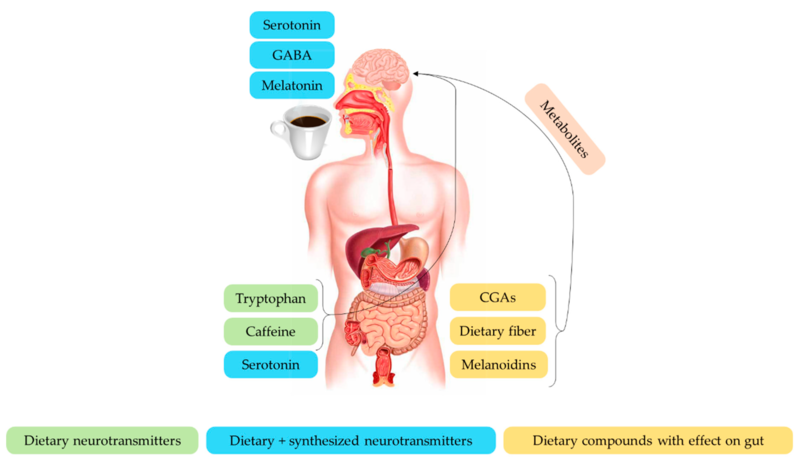Have you experienced butterflies in your stomach before? If that’s the case, believe it or not; the gut and the brain are linked to each other. You’d be surprised that our digestive system is sensitive to emotions. What our brain wishes to express will also manifest in the entirety of the digestive system.
In this article, we’ll get to know what Gut-Brain Link is. At the same time, we’ll cover the ways how health clinics can improve both digestive and mental health.
The Gut-Brain Link: An Overview
As stated earlier, it’s quite a surprise that the gut and the brain are linked to one another. Whether you express anger or any form of emotion, it will manifest effects on the gut – for example, when you feel discomfort. Your mind says it doesn’t like what it hears, your gut decides to get all acidic and grumbly.
With that said, the reverse can also happen. For instance, a troubled intestine would notify the brain right away. Your first instinct would be to look for a quick remedy or a first aid, or if not; you’d want to find primary care doctor to handle that.
Who Can Take Gut and Brain Link Treatments/Therapy?
Before we head over to the methods on how primary care can improve both gut and mental health, let’s get to know who can take these treatments. Here are the groups of people that can see a primary care doctor for gut-brain connection therapies:
- Patients with either moderate to severe Gastrointestinal conditions who haven’t responded to medical care.
- Patients whose Gastrointestinal health is impacted by stress or emotional causes.
- Patients who show interest in non-drug treatment for their Gastrointestinal conditions
- Patients with chronic GI ailments such as Crohn’s disease, pancreatitis, and others.
How to Enhance Both Digestive and Mental Health?
Now that you’ve learned how the mind and the guts are linked in both ways, let’s answer the question – how to enhance their health? There are a lot of ways that health clinics or doctors have used to ensure that both the mind and gut will perform well. Here they are as listed:
1. The Right Diet for the Gut Microbiome
Diet influences the microbes that are present inside your gut. For instance, reducing the intake of oligosaccharides, monosaccharides, polyols, and disaccharides changes the microbes inside a person. Now, for a direct example – you need to lessen the consumption of wheat, onions, and milk while focusing on fiber-rich foods that improve your gut’s health.
- An extra note, your primary care doctor could also recommend you add probiotics to your diet. Food items such as kombucha and yogurt are some examples. These food items can improve the number and variety of bacteria present in your gut.
- You can also load on some flavonols to improve your gut’s health. Dark chocolate, coffee, and tea are known to have flavonols that contribute to healthy bacteria presence but also improve your cognitive faculties.
2. Give Yourself More Exercise
Health clinics or primary care doctors could suggest you have more exercise. Exercise and physical activity can contribute to diversifying your gut’s native microbes. It’s also seen as a treatment to re-establish the balance of bacteria inside your gut. Also, exercise is a good way to refresh the mind.
3. Lessening the Intake of Antibiotics
If your end goal is to improve gut biodiversity, your primary care doctor could suggest you avoid antibiotic medication. Limit the intake to only when it is necessary and directed by your doctor. Antibiotics could contribute to the purging of microbes present in your gut.
4. Stress Control
The brain and the gut are linked together like two peas in the same pod. If one of them is stressed, the other will exhibit forms of stress tool. Your primary care doctor will suggest measures for stress control. There are three notable ways to keep stress under control and ensure good gut and mental health:
CBT / Cognitive Behavioral Therapy
The first therapy that can be of great use for a patient’s mind and gut is CBT or cognitive behavioral therapy. CBT is that it is a form of psychotherapy that involves reconfiguring your behavior and mood. This therapy is very well-known to influence both the brain and the gut and will reduce stress on both parts.
PMR / Progressive Muscle Relaxation
PMR or Progressive Muscle Relaxation could be suggested by your primary care doctor. Practicing PMR is all about a mix of mindfulness and increasing your awareness of muscular movement and sensations. Mastery of this technique allows you to release muscular tension before it can build up.
Meditation with Guided Imagery
Another proven technique that your primary care doctor could suggest is mediation through guided imagery. It is a combination of relaxation exercises and focuses on soothing mental images. How this is done through a guided audio or video program, the steps are provided to the patient by audio or presentation on screen.
Guided imagery is best utilized when you’re inside a room with little to no distractions. By relaxing your mind, in turn; your guts will relax as well.
5. Biofeedback
The last method that health clinics could suggest to improve gut and brain link is Biofeedback The best way to describe it is a technique where a person learns how to control involuntary body responses. One example is learning how to control heart rates or body temperature; albeit with the assistance of an electronic device.
Biofeedback is best used when paired with various stress-reduction techniques. You’d be surprised at the results it can provide.
Boost your Gut and your Brain’s Health
Now that you’re aware of how our gut and brain are connected, you should be taking steps to proper care of both of them. By maintaining a healthy and pro-biotic diet and reducing stress, you are giving both parts of the body a big favor. Make sure to consult with your primary care doctor first to see if you’re a good fit for specific mind and gut-improving methods.









